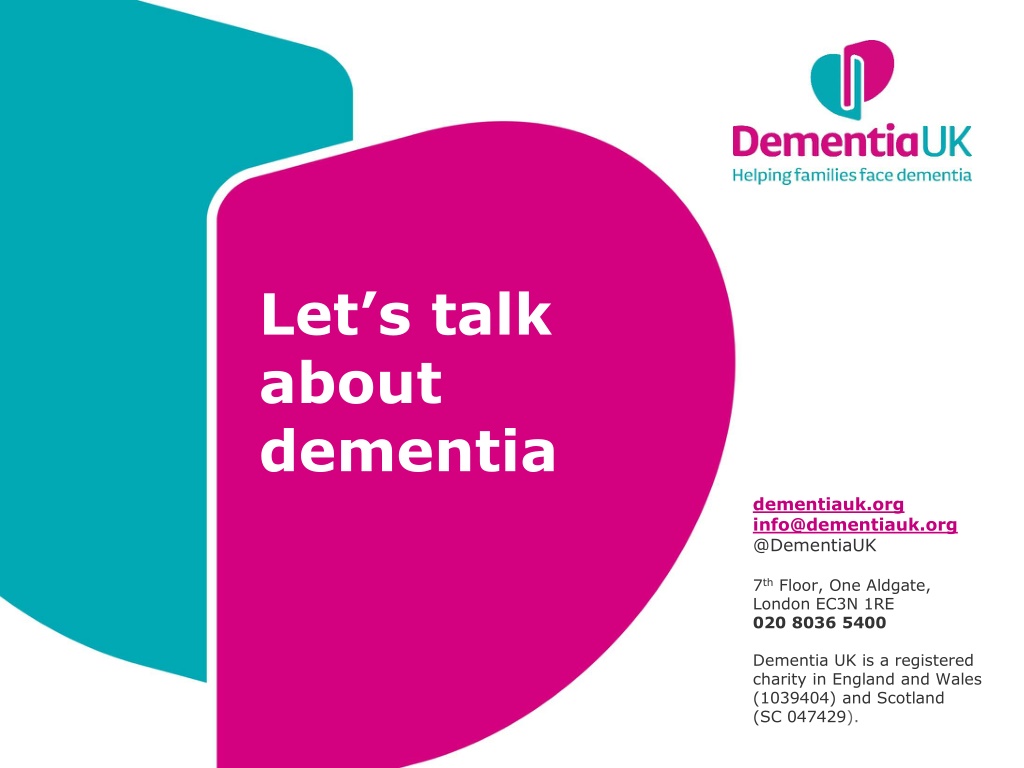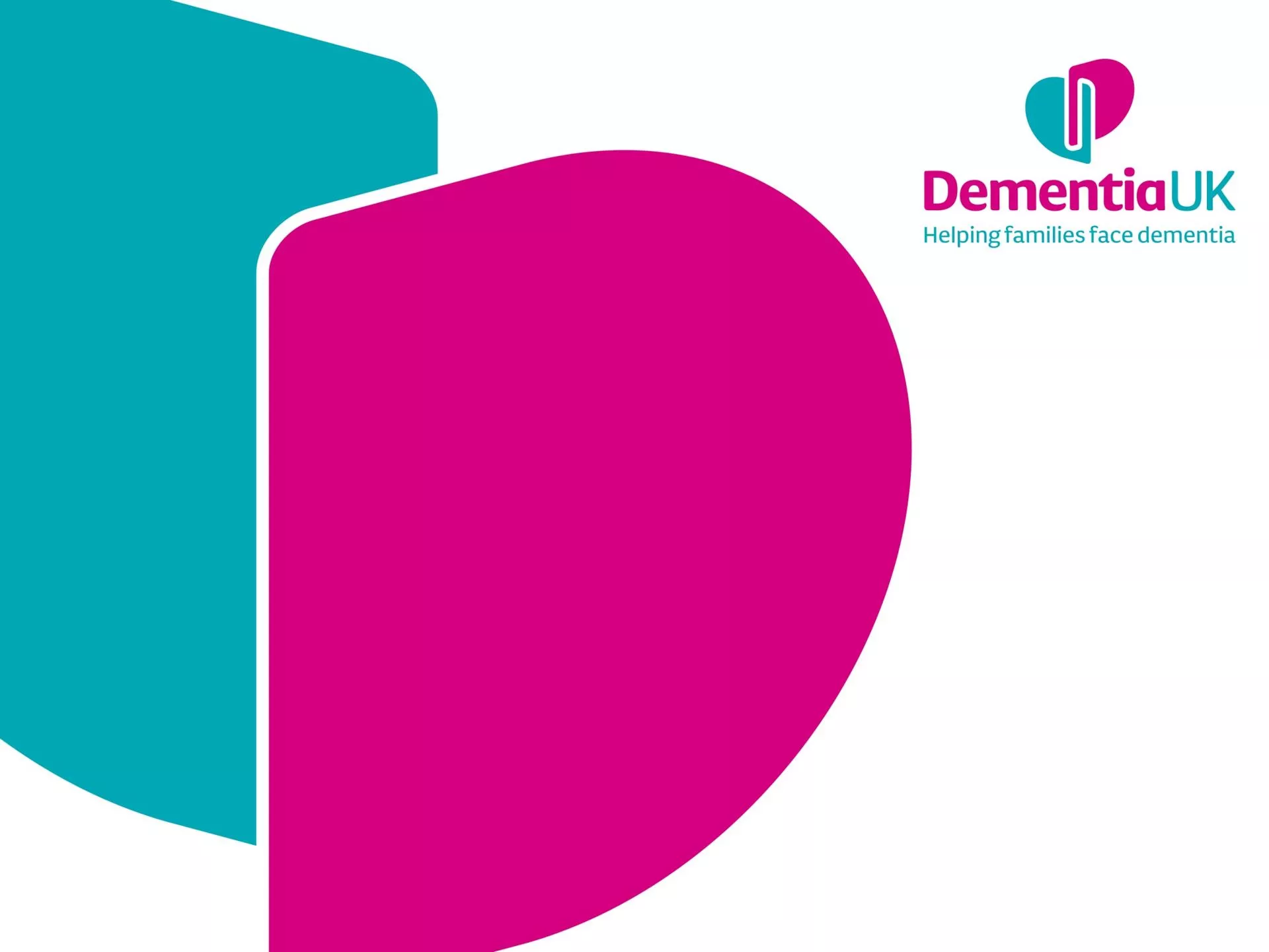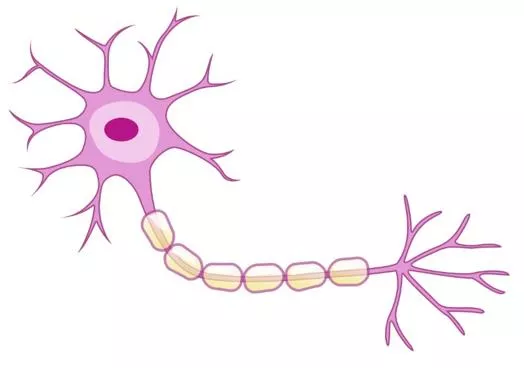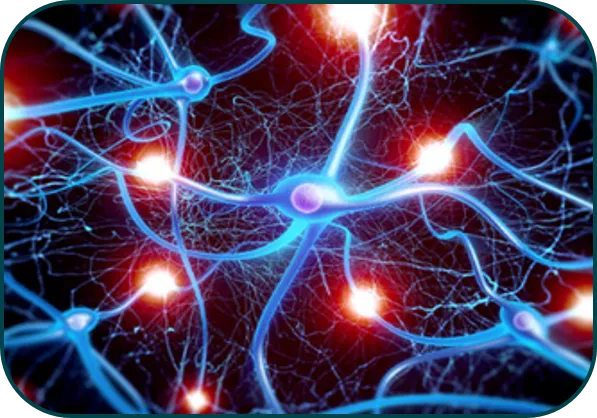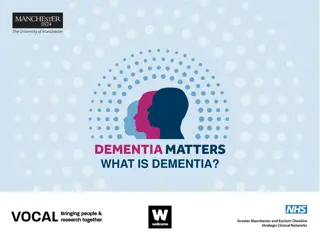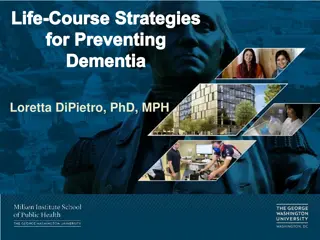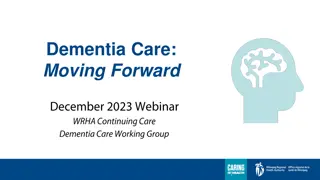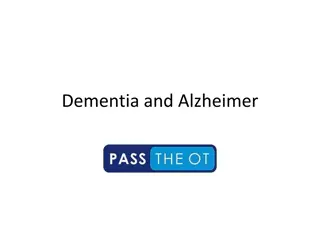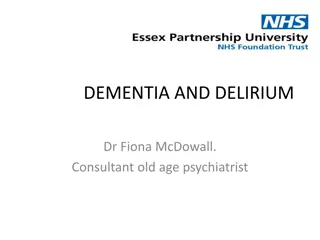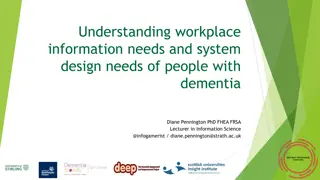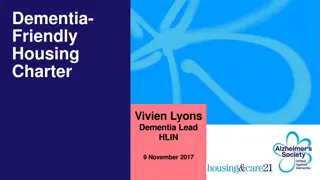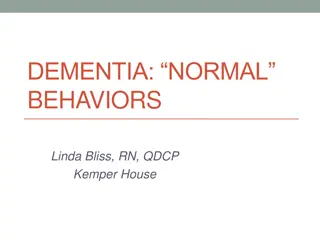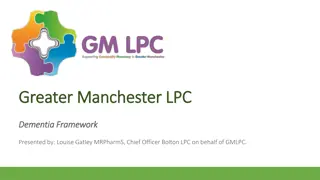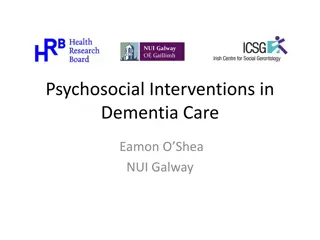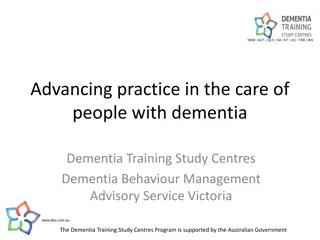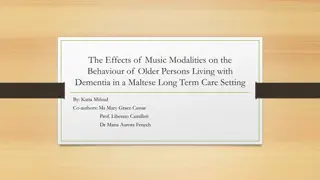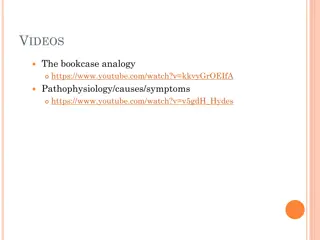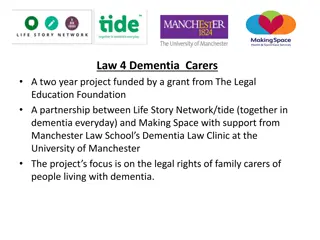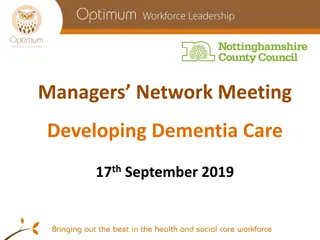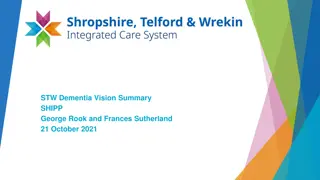Understanding Dementia: Causes, Symptoms, and Types
Dementia affects nerve cells in the brain, leading to memory problems, thinking difficulties, personality changes, and more. It damages different parts of the brain, causing various symptoms. Common types include Alzheimer's, Vascular dementia, and Lewy body dementia, while younger individuals may experience Frontotemporal dementia. The condition impacts the brain's normal functions, affecting awareness, coordination, thinking, memory, and language abilities. Early recognition and support are crucial in managing dementia effectively.
Download Presentation

Please find below an Image/Link to download the presentation.
The content on the website is provided AS IS for your information and personal use only. It may not be sold, licensed, or shared on other websites without obtaining consent from the author. Download presentation by click this link. If you encounter any issues during the download, it is possible that the publisher has removed the file from their server.
E N D
Presentation Transcript
Lets talk about dementia dementiauk.org info@dementiauk.org @DementiaUK 7th Floor, One Aldgate, London EC3N 1RE 020 8036 5400 Dementia UK is a registered charity in England and Wales (1039404) and Scotland (SC 047429). 16/04/2024
Lets talk about dementia animation video Let s talk about dementia February 2024
Nerve cells in the brain The brain has billions of nerve cells (neurons) which carry messages between different parts of the brain. Dementia causes damage to nerve cells which stops them from working properly. Our brains control everything that we do, so if messages are not received, this will lead to difficulties. February 2024 Let s talk about dementia
The brain and dementia Dementia affects people of all ages and is caused when the brain is damaged by disease. This can lead to the following symptoms: Memory problems (especially recent memories) Difficulty with thinking, planning and problem-solving Problems with speaking, such as finding the right words Changes in personality, mood and behaviour Balance and movement issues Difficulty with managing everyday tasks such as washing, dressing and eating February 2024 Let s talk about dementia
Types of dementia There are many different causes of dementia, which can affect different parts of the brain in different ways. The most common types of dementia include: Alzheimer s disease Vascular dementia Lewy body dementia Other types that are more likely to affect younger people (aged under 65) include: Frontotemporal dementia (FTD) Posterior cortical atrophy (PCA) There are many other types of dementia. February 2024 Let s talk about dementia
Dementia affects how the brain normally works Parietal lobe - controls awareness of our surroundings and coordination Frontal lobe - controls thinking, planning, solving problems and behaviour Occipital lobe - helps us interpret what we see Cerebellum - controls balance and movement Temporal lobe - controls memory, learning and understanding Language and speech February 2024 Let s talk about dementia
How do you think it might feel to have dementia? Everyone is individual, so the condition and their ability to cope with the symptoms will affect them in different ways. Different types of dementia can lead to different parts of the brain being affected. In the early stages of dementia, people can often manage independently or with very little help. But, as the condition progresses, people will need more support and understanding, especially from family and friends. February 2024 Let s talk about dementia
How and when to help It s important for people with dementia to stay as independent as possible but this will become more difficult as their symptoms get worse. Helping them may be seen as interfering, so it is not always easy to know how and when to provide support. Asking the person if they would like some help to do something can make it easier for them to accept. February 2024 Let s talk about dementia
What else can help? Hobbies and interests February 2024 Let s talk about dementia
Fun and helpful activities Although a person with dementia can forget recent memories, they often remember older ones such as their job, wedding, hobbies and even childhood memories and music. Memories can be collected in different ways and new memories can be made by doing things together: Scrap books containing pictures, photos and memorabilia Memory box containing significant and important objects and decorated on the outside to make it personal Downloading favourite music that you can listen, sing or dance to together Watching favourite films or television programmes Reading books or going for walks together February 2024 Let s talk about dementia
